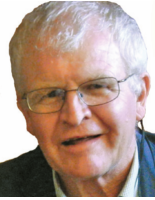All of us should look deeper within ourselves for unconscious bias
My last column, on leadership during a pandemic, reflected on my West Africa experience during Ebola and asked the question, “Will you be ready when a crisis strikes?” With the recent deaths of George Floyd and others at the hands of law enforcement, our country faces another crisis requiring us to step up and make a difference. In my leadership workshops, I emphasize embracing personal change in order to grow. That principle clearly applies to this situation.
“Back to the Future” is one of my favorite films. It has a powerful underlying message – actions today do change the future. A recent meme has the character Doc telling Marty, “Whatever happens, don’t go to 2020.” While we might prefer to be living in a different year, crises create opportunities for positive change. I hope this one will.
Writing
about race is fraught with risk. I expect to be criticized, but these
are not times to be quiet. We all need to share our thoughts, listen to
others, have meaningful conversations, and be the change we want to see.
I
am no expert on this subject. I grew up in a white suburb and live
today in a very white rural area of our state. Yes, I worked in Africa
and had many Black colleagues, but that doesn’t mean as much as I might
have thought.
A couple of years ago, I took the free online
Harvard Implicit Association Test which concluded that my biases
against people of color run pretty deep. I think of myself as a good and
fair person, so this was a bit of surprise. But it reinforced that the
racial divide is built on a long history, including subtle (and not so
subtle) messaging and socialization. If we are going to change the
future, it requires all of us, especially white people, to do some
serious work to better understand unconscious bias.
I
recently assumed a volunteer leadership role with Braver Angels, a
national nonprofit that fosters conversations and understanding between
people of opposing political viewpoints. Many Americans are engaging
harshly across political lines these days, but breaking through the
racial divide is an even tougher challenge.
Meaningful
conversations about race are difficult and rare — a kind of third rail
we often don’t want to touch. As a former New Hampshire state
representative, I was honored to participate in the 1995 Toll Fellows
program that brings national leaders together in Lexington, Ky. A big
news event at the time was the O.J. Simpson murder trial, and I remember
thinking something was very wrong in our country when polling showed
that opinions of his innocence or guilt were so deeply divided across
racial lines.
One day
in Kentucky, our program was shortened so we could watch the trial
verdict live. O.J. was acquitted, and, that same afternoon (it so
happened), we had a panel presentation on diversity. No one even
mentioned the Simpson trial or its broader implications. People,
including myself, were afraid to touch it. I don’t think that has
changed much in the last 25 years.
We have the same problem with much of
today’s corporate diversity and inclusion training. These typically
have a “check the box” feeling, scratching the surface, but rarely
engaging people in meaningful conversations that change behavior, hearts
or minds.
George
Floyd’s death coincides with the Covid-19 pandemic, of course, and data
is clear that African Americans have experienced higher rates of
illness, death and unemployment than white people. The racial divide
runs pretty deep.
It
is important to recognize the personal feelings that so many African
Americans have had watching the killing of Mr. Floyd. Too many have had
harsh experiences of their own involving police. A friend told me a
story that was very chilling. How many white people have literally
feared for our lives during encounters with law enforcement?
If
we want to build a better country, all of us, especially leaders, need
to become better educated and look deeper within ourselves for
unconscious bias. We need to get out of our comfort zones and
courageously encourage meaningful conversations with people different
from ourselves.
If we act to end this pattern of injustice, we can create a better future.
We
each have an extraordinary opportunity to make a difference in people’s
lives, including our own. Don’t underestimate your impact!
Douglass P. Teschner, founder of Growing Leadership LLC, can be reached at dteschner@Growing-LeadershipLLC.com.